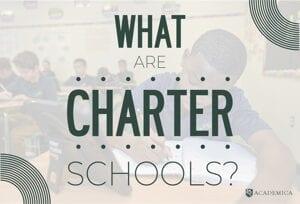Blogs







The concept of charter schools was originally proposed in 1974 by Ray Budde, an education professor, and Al Shanker, a professor at the University of Massachusetts. They envisioned charter schools as “a legally and financially autonomous public school (no tuition, religious affiliation, or selective student admissions) that would operate much like a private business.”1 These schools are considered to be 'schools of choice', a new option for learning environments for students.
Charter schools are independently-run public schools. Once a charter school receives its charter from its Authorizer or Sponsor, they operate under a contract with that entity. A sponsor or authorizer is charged with holding the charter school accountable for meeting the terms of its contract. Charter schools face greater responsibility when it comes to its performance, yet are more flexible when choosing how to operate. With the variety of curriculums offered by charter schools, parents are given several options in order to find the best educational environment for their child. The opportunities that charter schools offer are endless. Some offer college preparatory curriculum, international programs, or dual language programs. In several cases, charter schools offer more cutting-edge, rigorous or advanced curriculums for their students.
Charter schools have high standards of accountability for their performance. If charter schools do not display any academic achievement or meet the standards of its charter, they may be closed.
Charter schools free parents of being bound to the schools they are zoned to attend. Charter schools afford all children the opportunity to have a high quality education, regardless of their zip code.
